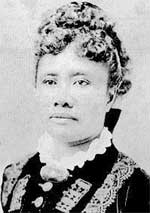Thu 21 May, 2009
Connecticut House votes to apologize for slavery
Comments (7) Filed under: Politics, Remedies| Tags: Apologies, Connecticut, Legislation, Racial discrimination, Slavery |
The Connecticut House of Representatives voted unanimously today in favor of a resolution declaring “profound contrition” for the state legislature’s historic role in slavery and racial discrimination.
Connecticut would become the second northern state, after New Jersey, and the first state in New England, to apologize for its role in slavery and discrimination.


